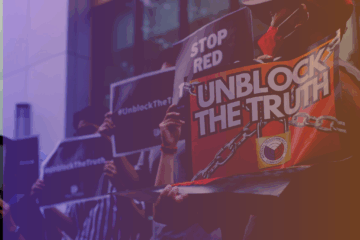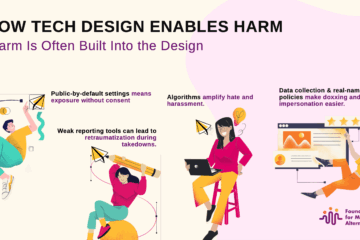FMA attends DRAPAC, APrIGF; applauds expansion of digital rights movement in Asia-Pacific

The Foundation for Media Alternatives (FMA) is eager to share with our community the strategies and lessons we picked up from fellow digital rights activists and technologists after participating at the back-to-back Digital Rights in Asia-Pacific (DRAPAC) and Asia-Pacific Regional Internet Governance Forum (APrIGF) held at the NTUH International Convention Center in Taipei, Taiwan from August 18-23, 2024.
As advocates for safer and freer internet, FMA participated in a number of sessions tackling emerging issues and current gaps on digital security, gendered disinformation, and privacy. Having opened up about these existing challenges with fellow digital rights advocates in the region, we were hit with the realization that, even after years of engagement in the field of digital rights, there is still so much to learn about and from each other’s fight for a safer digital space.
In one of the sessions Ms. Liza Garcia, Executive Director of FMA, participated as a speaker at the APrIGF, she talked about how the lack of digital literacy and access among women often aggravate the harms caused by technology-facilitated gender-based violence (TF-GBV). This is an often overlooked aspect of TF-GBV as the persistent exclusion of women and other minorities in digital spaces rids them of their chance to learn about their online rights, consequently leaving them vulnerable to abuse and other forms of discrimination.
Adjacent to this discussion was the importance of conducting and teaching digital security together with marginalized sectors, which Thina Lopez, FMA’s gender program officer and digital security trainer, talked about together with other digital security practitioners. The topic of privacy policies amid rapid digitalization were also reviewed by Atty. Jam Jacob, legal adviser of FMA. Meanwhile, Jessamine Pacis, FMA’s special project officer and APrIGF fellow, worked on internet fragmentation case studies to discuss the ways of monitoring and responding to such threats.
Two sessions also highlighted the importance of collective care among digital rights defenders. Activists and civil society members are expected to tend to their communities. But given the varying degrees of human rights abuses which advocates respond to, their disposition can be put under strain. It is in these times that providing collective care also becomes important to advancing our cause. Collective care, for FMA, corresponds to more than just deciding to participate in a collaborative process. It also acknowledges that advocates and organizations keep in mind the safety of people we work with.
Among these conversations about the local and regional situation of digital rights in the Asia-Pacific, some advocates cannot help but ask how far we have come along in promoting digital rights for all. In a session about international policy-lobbying, participants pointed out how more diverse the movement has become over the years. However, despite this, the richness of the voices eventually diminishes as they remain to be barely acknowledged in policies and reforms.
Events like DRAPAC and APrIGF can make organizations and individuals like FMA realize that there is still so much to do in advancing our advocacies. But these gatherings also serve as the perfect time to expand the movement and build momentum towards a better digital world.



0 Comments